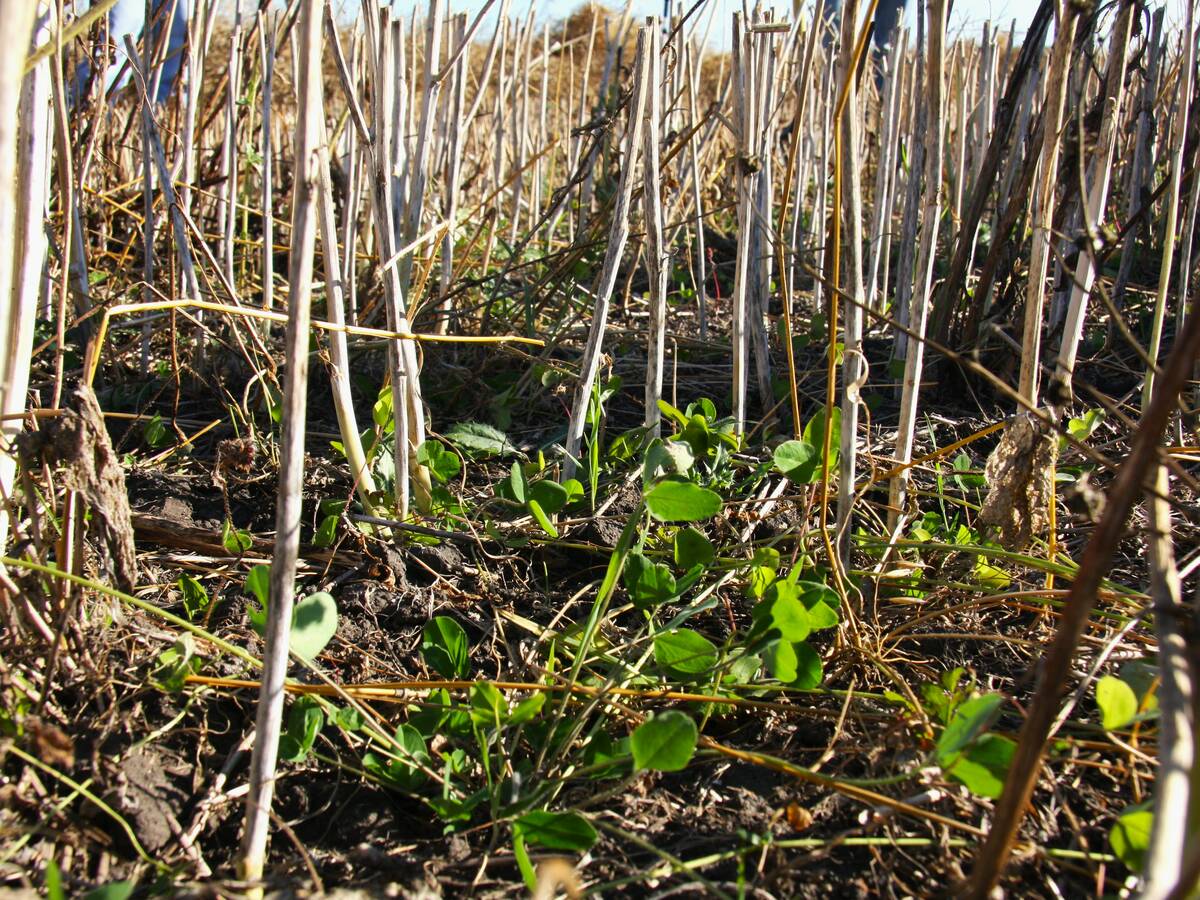BRANDON — Fall Line Capital is recognized primarily as a farmland investment firm, but it also invests in early stage ag technology companies that initiate innovative solutions to agronomic challenges.
These companies have the potential to become strategic to Fall Line land holdings by improving soil productivity and enhancing soil stewardship, says Fall Line agent Scott Day.
The company has invested in nine leading edge technology firms.
“We made a very deliberate decision to invest in technology, as a means of meeting our mandate of good land management,” said Day, adding that Fall Line uses its links with new technology as an enticement to attract top producers to farm its land.
Read Also

Saskatchewan project sees intercrop, cover crop benefit
An Indigenous-led Living Lab has been researching regenerative techniques is encouraging producers to consider incorporating intercrops and cover crops with their rotations.
“Our tenants know they will have access to the latest farm management software and services, things like satellite imaging, Planet Labs, soil testing, plant tissue testing, field mapping, drainage equipment and any other assets he may not otherwise afford.
“We got together with all our tenants and our ag tech investment people in January in Utah.
“We’re a community of like-minded farmers and innovators, and we’re all interested in using the latest technology to the limit. The group worked really well together because many of our ag tech investments previously didn’t have a direct connection with real producers.”
Day said his Fall Line team provides the guidance, experience and expertise that an early stage entrepreneur would expect from a mainstream, top tier, Silicon Valley venture capital firm. They bring an unprecedented level of domain expertise in the agricultural market.
“We function as a traditional early stage investor,” he said.
“We also function as a strategic investor without the tradeoffs that often come with strategic investors. Fall Line wants to test these new products on our land.”
Fall Line consciously promotes triangular relationships involving itself, one of its nine leading edge ag technology companies and the farmer who leases land owned by the company. A example of this triangle involves Trace Genomics and Walther Farms.
Trace Genomics deals with early detection of soil-borne plant diseases with the aim of combating those diseases before the crop is planted. This results in reduced costs for the grower, increased productivity and less consumer concern about chemical contamination.
Its unique soil test allows growers to take early steps in dealing with soil-borne pathogens.
Walther Farms is a major potato producer with 12,000 acres on 12 farms across five states.
As with potato production anywhere, disease is the biggest enemy, and fungicide application is one of the biggest expenses. Day said the triangle of Fall Line, Trace Genomics and Walther Farms is a perfect fit for all partners.
Trace Genomics says its proprietary molecular assay for soil-borne organisms allows affordable detection of hundreds of pathogens as well as beneficial organisms. Its test uses genetic sequencing technology that enables strain-specific identification.
The process uses the same kind of machine learning that is widely used in fraud detection.
Automated data analysis helps build models that allow a computer to find hidden pathogen clues without being explicitly programmed where to look. The process identifies microbes and genetic mutations that cause a disease or that can fight a disease.
Trace Genomics scientists use this data-driven analysis to understand soil health and design methods to increase the quality, yield and shelf life of Walther potatoes.
“The producer can now focus on pathology and biology of the soil as it relates to potatoes,” Day said.
“The producer did not have that advantage before our January meeting. It’s good for the land he owns. It’s good for the land we own. And it’s good for the ag tech company we invested in.”















